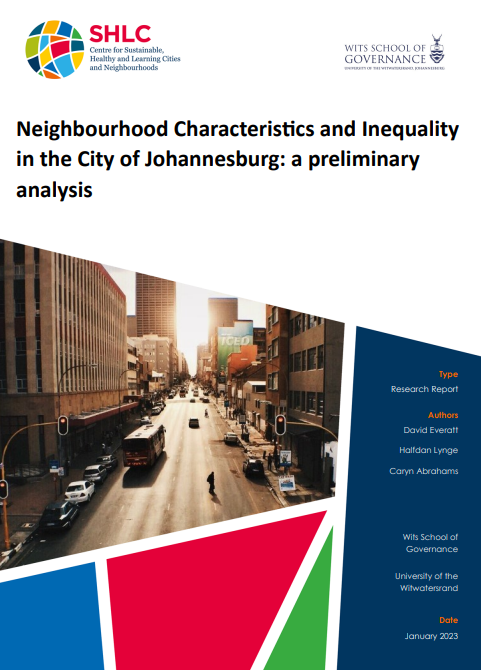City Report - Neighbourhood Characteristics and Inequality in the City of Johannesburg

01 January 2023
Centre for Sustainable, Healthy and Learning Cities and Neighbourhoods
English
Research report
Africa
Johannesburg is among the most unequal cities on the planet, and the results of this survey reflect this fact, as two cities emerge: one poor, overwhelmingly black African, with high social capital but poor service access, reliant on state provision of health and education, the other mainly white and Indian (although a fifth of African respondents were in the highest socio-economic status (SES) quintile, suggesting an African elite is prospering), with low social capital but the high standard of living. It is the middle quintile – comprising primarily townships formerly zoned for coloureds and Indians – that seems to be taking the most strain, with high levels of psycho-social, health, crime, and other negative factors taking their toll. The city emerges as comprising a wealthy suburban population that primarily uses private providers (school for children, health care, transport) and tends to be clustered in small, not very socially engaged groups; and the bottom two SES quintiles, where reliance on ‘the economy of affection’ ensures greater social interaction and engagedness, but in a context of high unemployment and poverty. The middle quintile seems stretched close to the breaking point. The city is uneasily balanced on this continuum.
Access the City Report - Neighbourhood Characteristics and Inequality in the City of Johannesburg.
For another research report in this series, see also The City Report - Neighbourhood Matters in Cape Town.
Abstract based directly on source.


Comments